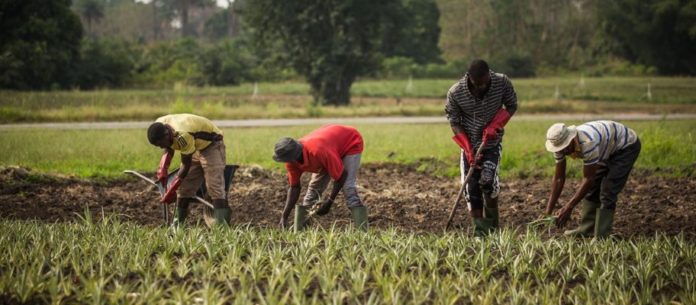The increasing food deficit and demand from neighbouring countries, such as Nigeria, Niger, and Burkina Faso, have put enormous pressures on the local and regional food markets.
According to World Bank experts, Nazaire Idrissou Houssou, Erick Abiassi and Chakib Jenane, the West Africa sub-region gross deficit in cereals was estimated at 9.5 million tonnes, including nearly four million for Nigeria.
“The Government of Benin has confronted the current food crisis by taking essentially short-term measures, ranging from banning cereal exports to neighbouring countries, imposing export tariffs, and procuring subsidized inputs to the farming population,” the experts said.
“However, these measures quickly revealed their limits as the Government was overwhelmed by the persistent inflation, rapidly increasing prices of imported inputs and consumer goods – brought about by the Russia-Ukraine war – and the export tariffs set up did not reduce the regional outflows of cereals. Benin has generated little food production surplus over the past few years.
“The regional food deficit is going to persist in the foreseeable future, further increasing pressures on food prices on the local and regional markets. Hence, this could be a golden opportunity that Benin can seize by producing more food crops and expanding food trade with countries that have significant food deficits in the sub-region.”
They added that Benin’s farmers have gone their way to seize local and regional market opportunities by increasing their production.
However, the farmers’ response has been weakened by inconsistency in trade policy, and, hence, has not involved significant level of intensification to enable them to take a full advantage of the current regional market opportunity brought about the persistent food crisis in the West Africa sub-region.
“Benin’s seed system is characterised by several weaknesses, such as poor coordination, lack of understanding of regulations and therefore little compliance with the norms, weak estimation of seed demand, quality control, and capacity.
“Most farmers do not have access to high-yielding varieties and certified seed to enable widespread yield increases. According to the agriculture sector performance report, in 2020, for example, only 4.7 % of certified seed demand was met for maize, 22.2 % for rice, and 6.8 % for soybean.”
The recent adoption of the seed sector development strategy (2022-2026) is a good step for the development of a vibrant seed industry in the country.
“The seed subsector can contribute significantly to the competitiveness and development of cereal value chains if the following key challenges are addressed in a timely manner, including strengthening the human and infrastructure capacity of public and private entities, diversifying seed production, improving communication and knowledge sharing on seed regulations and norms, and strengthening the seed research system, establishing business links between producers and seed companies, and opening up the seed sector to regional players who have a demonstrated capacity to supply the country with high quality seeds within the framework of ECOWAS (Economic Community of African States) harmonised seed regulations.”
Following the Ukraine-Russia war, a regional response to soaring fertiliser prices and unavailability is essential to meeting fertiliser needs of individual countries in the West Africa sub-region in the medium and long terms. Benin imports the bulk of its fertilizer from Russia, a country affected by war and trade sanctions.
Fertiliser prices are expected to further increase in the near future. The Benin government had already announced that it will not be able to sustain fertiliser subsidies because of limited fiscal space.
“Scaling up fertiliser manufacturing in the West Africa sub-region is key for the transformation of African Agriculture. Establishing fertilizer manufacturing is a costly investment that is hard to justify in any single country if fertilizer resources are abundant but overall demand is low and vice versa,” the World Bank experts added.
“Nigeria has been able to overcome the investment cost challenge as it has recently inaugurated its mega fertilizer plant amid the fallout of the Russia-Ukraine war.
“The proximity of the new fertilizer plant offers a critical window of opportunity for Benin policymakers and private sector to engage their Nigerian counterparts within the frameworks of the Economic Community of African States (ECOWAS), the African Continental Free Trade Agreement (AfCFTA) and other bilateral agreements to source fertiliser inputs for its farming population to increase food production and meet increasing regional demand for food products, and turn away from trade restrictions, which send the wrong incentives to producers.”








